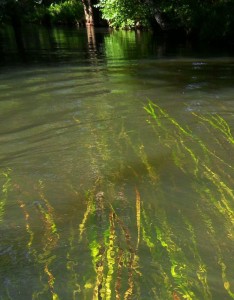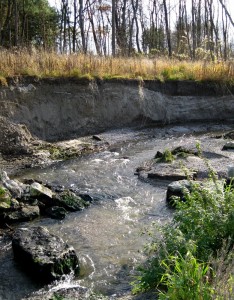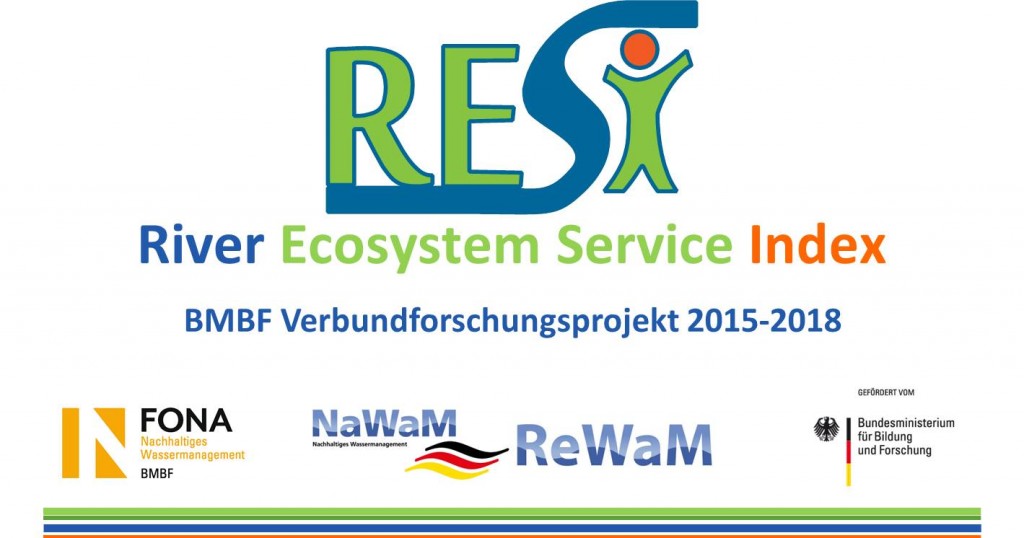RESI Concept
The overlaps, synergies and antagonisms in the use of specific landscape elements by the various sectors of society may be illustrated by representing the ecological functions of that landscape that are used by humans. These functions can only partly be measured in a direct way, and hence are captured by means of indicator variables. The extent of available ecosystem services is evaluated based on the degree of fulfilment of the politically agreed objectives, and interactions between the various uses are considered, too. These assessments of individual ecosystem services that are available in a certain river and floodplain section are then summarized in an overall index. This River Ecosystem Service Index (RESI) thus represents an overall evaluation of the capacity of the natural resources in a riverine landscape.
The product of the ‘River Ecosystem Service Index (RESI)’ project hence facilitates the development of sustainable and integrative management approaches, as it aims at an economic-ecological optimization of the use of land and water bodies. This enables to avoid considerable social costs, and on the other hand economically interesting and sustainable options for the use of river corridors can be identified. RESI may thus support the implementation of important societal objectives by environmental agencies, and may also support sustainable business concepts of private companies. After minor modifications, RESI can also be transferred to river landscapes abroad that are subjected mostly multiple human uses, too.




